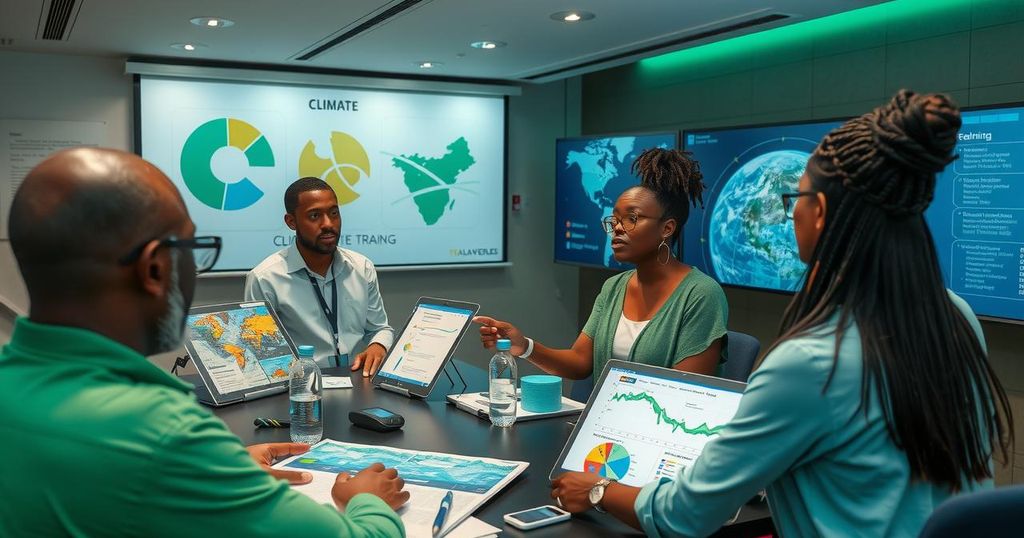The COP16 biodiversity summit commenced in Cali, Colombia, on October 21, 2024, with global calls for urgent actions and financial support to combat biodiversity loss. Colombian Environment Minister Susana Muhamad stressed the immediate need for intervention, while other leaders outlined the ambitious targets and strategies necessary for meeting UN biodiversity goals by 2030. The summit, attended by over 23,000 delegates, including heads of state, is pivotal for establishing international cooperation and funding mechanisms to protect vulnerable ecosystems.
The biggest global conference on nature protection commenced in Cali, Colombia, on October 21, 2024, highlighting urgent calls for action and financial support to combat the extensive damage inflicted upon the world’s biodiversity. Addressing delegates from approximately 196 nations, Colombian Environment Minister and COP16 President Susana Muhamad emphasized the critical need for immediate intervention, stating, “The planet doesn’t have time to lose.” With nearly one million species assessed to be at risk of extinction globally, the summit, themed ‘Peace with Nature,’ aims to create effective monitoring and financial strategies to fulfill 23 United Nations targets established at COP15 two years ago, which seek to halt and reverse biodiversity loss by 2030. More than 23,000 participants, including about 100 government ministers and a dozen heads of state, have gathered for this unprecedented biodiversity COP, which is scheduled to last until November 1, 2024. The conference is fortified by the presence of over 10,000 police and military personnel due to security concerns raised by the EMC guerrilla group, who warned international delegations against attending and predicted the conference would not succeed. The delegates face significant challenges in reaching the ambitious target of protecting 30 percent of land and marine areas by the year 2030. According to a Greenpeace report, only 8.4 percent of the oceans have been designated as Marine Protected Areas, highlighting the limited progress to date. Megan Randles, a policy advisor at Greenpeace, stated, “At the current rate, we won’t hit 30 percent protection at sea until the next century.” Moreover, Astrid Schomaker, the executive secretary of the CBD, indicated that only 34 of the 196 signatory nations have submitted their National Biodiversity Strategy and Action Plans, denoting slow progress toward the UN’s biodiversity goals. United Nations Secretary-General Antonio Guterres urged member countries to transform promises into tangible actions and called for increased financial contributions to the Global Biodiversity Framework Fund (GBFF), which has so far received around $250 million in commitments. This fund is part of a more extensive agreement aimed to mobilize at least $200 billion annually for biodiversity by 2030. The summit’s goals also include establishing frameworks for the equitable sharing of benefits derived from genetic resources taken from biodiverse regions, particularly for medicinal use. Given that Colombia is among the most biodiverse nations, President Gustavo Petro has prioritized environmental initiatives, striving to alleviate the impact of decades-long armed conflict in the region. In summary, the COP16 serves as a platform for international collaboration, aiming to address the alarming decline of global biodiversity through enhanced financial commitments and actionable strategies to meet sustainability goals.
The effects of climate change and human activity have led to alarming declines in biodiversity worldwide. With nearly one million species at risk of extinction, international efforts must be intensified to secure the future of biodiversity. The COP16 conference aims to establish actionable strategies for protecting nature and securing funding required for initiatives aimed at biodiversity preservation. The summit takes place in Colombia, a nation known for its rich biodiversity but also for its historical struggles with armed conflict. The involvement of world leaders and environmental stakeholders underscores the significance of cooperation in addressing challenges on a global scale.
The UN biodiversity summit in Colombia highlights the urgent necessity for concerted global action to safeguard the world’s biodiversity. Through collaboration and financial investment, the international community aims to meet specific ecological targets by 2030, particularly focusing on the protection of terrestrial and marine areas. Despite existing challenges, including underfunding and security issues, the conference represents a pivotal moment for advancing biodiversity preservation efforts.
Original Source: www.seychellesnewsagency.com




